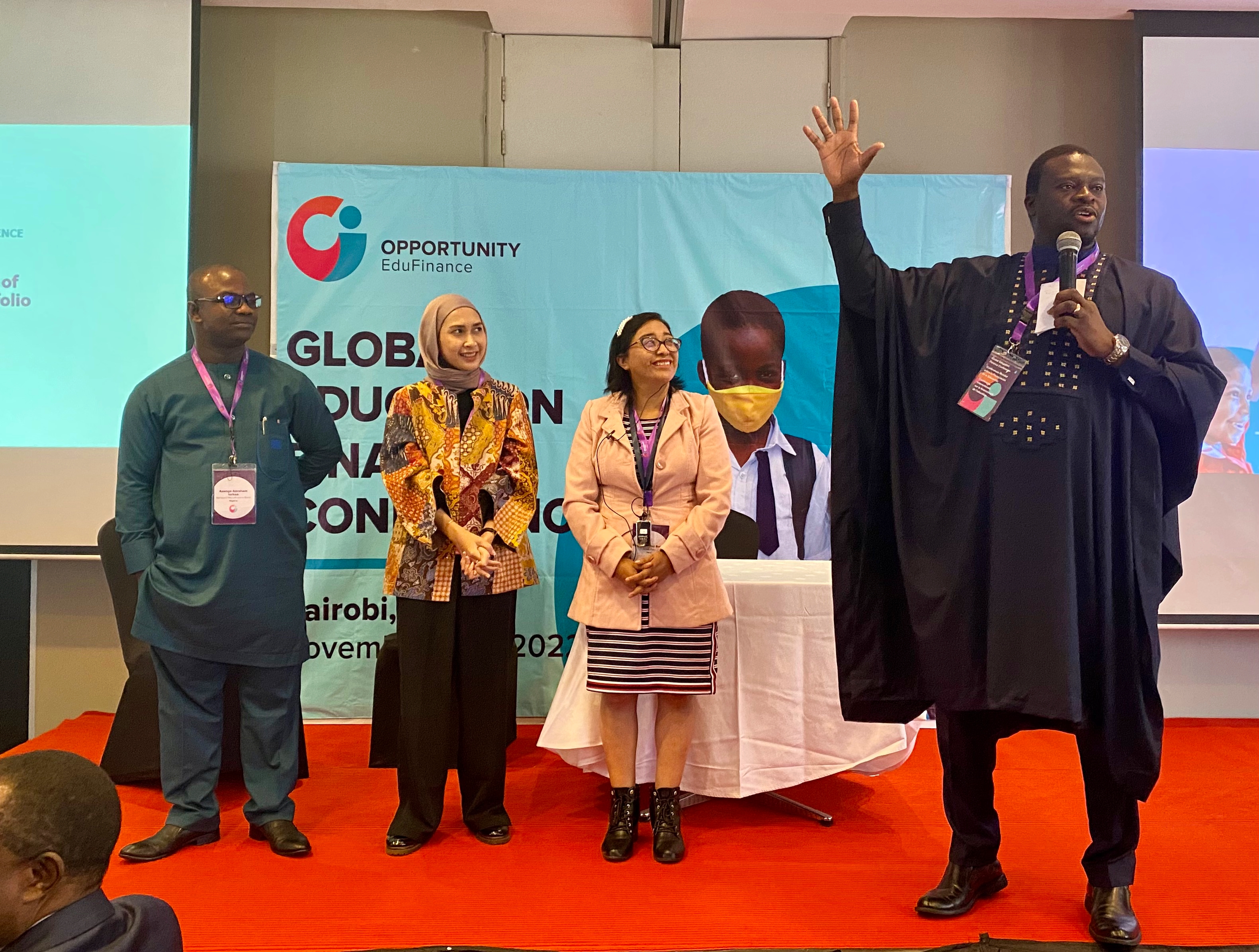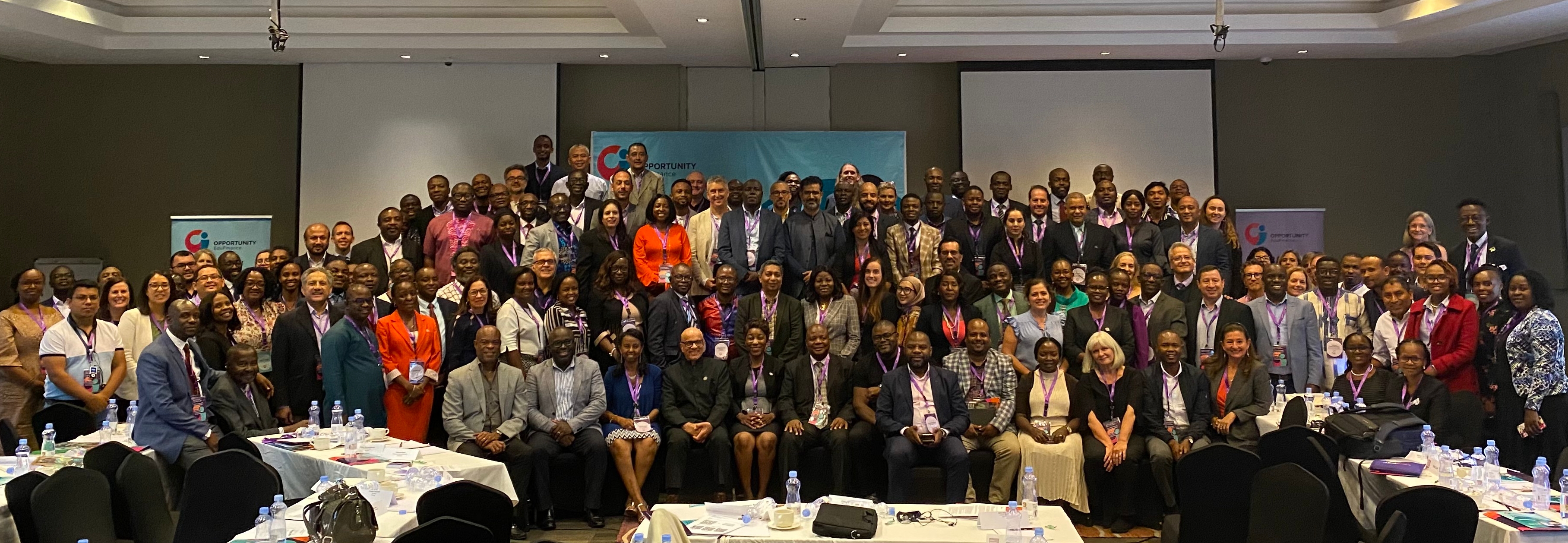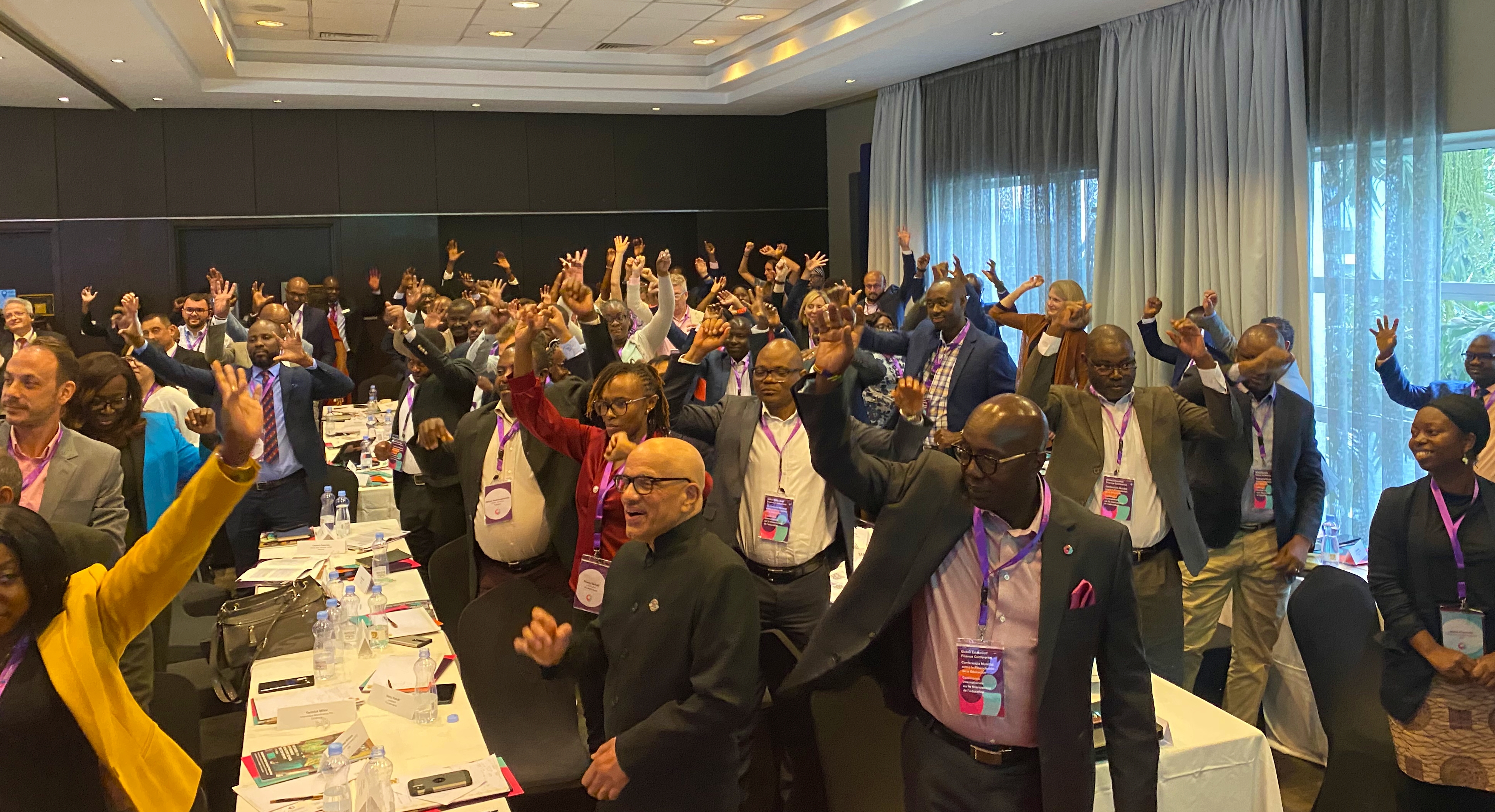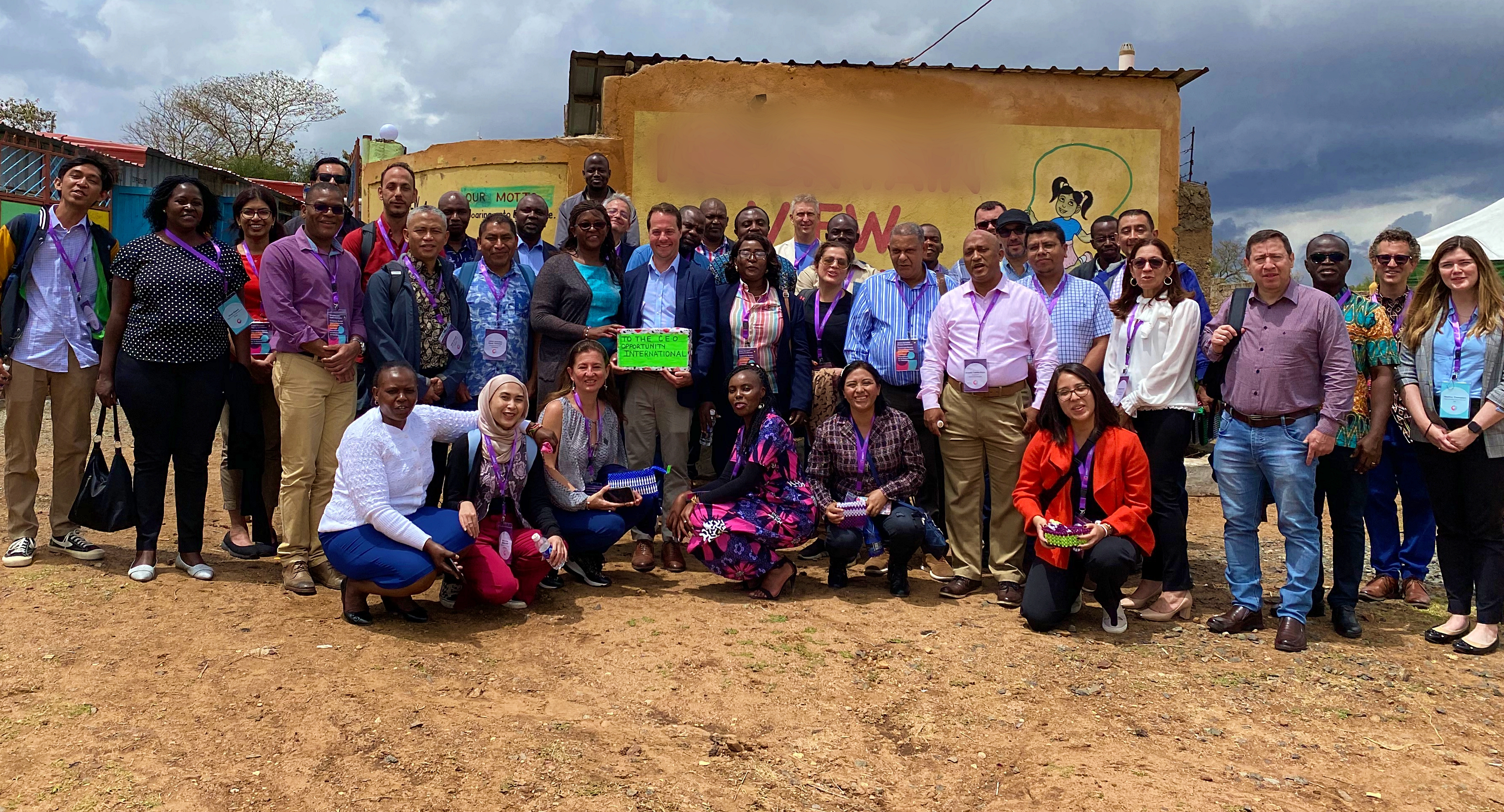INVESTING IN OUR GLOBAL FUTURE: 2022 Global Education Finance Conference

Around the globe, almost all schools have returned to in-person learning for their students after COVID-19 closures. This includes millions of affordable non-state schools run by local, independent school owners, which represent more than 1 in 4 schools across low- and middle-income countries. These dedicated school owners showed resilience during school closures despite insurmountable odds and fought tirelessly to keep their doors open so children would have a school to return to.
These are the school owners, teachers and students that need access to education financing.
During the recent Global Education Finance Conference, Robinah Zawedde, EduFinance Technical Assistance Advisor, reminded us of why we were all sitting together in that conference room. She asked us all – bankers, CEOs, impact investors, funders, researchers – to visualize that one child looking at us with the hope that they too could access the kind of quality education we had all benefited from in our lives.
The packed room was silent as we internalized what education finance really means to that one child.
Investing in our Global Future: Growing Sustainable EduFinance Portfolios that Unlock Access to Quality Education
This year’s Global Education Finance Conference, hosted by Opportunity International EduFinance in Nairobi, Kenya brought together 155 attendees from 37 countries, including financial institutions, impact investors, development finance institutions, bilateral funders, researchers and more. Of the 100 organizations represented, 79 were financial institutions from 22 countries across Africa, Asia and Latin America. The conference theme highlighted the link between the business case for education financing and the aim of Sustainable Development Goal #4 – quality education for all.

Over three days, attendees examined what the research says about market demand for education financing, discussed and shared evidence-based best practices based on attendees’ experience lending to affordable schools and parents, and considered innovations that can contribute to growing sustainable EduFinance portfolios.
The conference format was designed to keep all attendees in the room together for a wide range of peer-to-peer learning and knowledge sharing opportunities. They raised challenging questions to presenters, panelists and one another on how to solve common challenges and learn from the successes of other financial institutions lending in education. Despite reasonable expectations that fears of competition would limit meaningful sharing between institutions, attendees far exceeded expectations with open, transparent questions and reflections in the spirit of collaboration and learning.
DURING DAY 1, attendees heard from a CEO panel representing institutions from India, Pakistan, Nigeria and Paraguay sharing their first-hand experiences in leading institutions that provide education lending. This was followed by an equally diverse panel of senior leaders who revealed the deeply personal ways education has impacted their own journeys.
Attendees also received a pre-released copy of the latest State of the Affordable Non-State School Sector report, hearing what the research says about market demand for education financing, estimated at US$36 billion. This includes the need to add 56 million additional seats for children in affordable non-state schools through 2025 to keep up with demand trends. As one attendee challenged the room, while it is worth celebrating the cumulative US$500 million investment to date into education by partners in the room, this investment is only a fraction of the current demand by schools and parents globally.
The afternoon session explored the technical aspects of designing school improvement loan products, effectively lending to schools, and ended with a powerful case study from Pahal Microfinance on launching and scaling up a profitable school fee loan portfolio in India.
Attendees were asked to share key takeaways after Day 1, reflecting on any learnings or surprises from the day. Reflections included:
- Lending to schools should be considered differently than other general SME lending
- Best practice is to understand a school’s challenges and then see how the financial institution could address any or all of those challenges
- There is a strong business case and a big opportunity for education financing
A school improvement loan is a relationship product rather than a transactional product and financial institutions should be prepared to support a school through its growth journey by providing solutions to its changing needs.
As one attendee summarized the day “It is worth it to be here and worth it to bet on education.”

DAY 2 integrated more interactive sessions and expanded the technical discussion around best practices for growing sustainable, quality Education Finance portfolios. Attendees sat side-by-side with their peers from countries and regions around the globe to discuss case studies and share practices that are working at their institutions.
Those in the room that had participated in a School Leadership Academy workshop, facilitated by Opportunity EduFinance, shared their takeaways and follow-up engagement strategies with prospective school borrowers that attended their workshop.
Mid-day attendees were energized by a humorous yet powerful role play, confronting senior leaders with an exaggerated perspective of what a school owner may encounter when seeking information about a school improvement loan from one of their own branches. Amidst laughter, many shared feedback acknowledging that customer service is key to success – or failure – in school lending.
The day ended with presentations around innovation in the education finance lending space and a panel discussion with leading impact investment funds on options for funding education portfolios.
ON DAY 3, attendees were offered the chance for a field trip, leaving the comfort of the conference room for a 30-minute bus ride to a local school in Nairobi. Dividing the group between two school locations, school owners graciously shared not only their school’s origin story, but the details of how they funded, grew and continue to invest in their school. They shared their vision for their schools, the challenges of buying land, the number of girls they provide monthly sanitary napkins to because they wished someone had done it for them. They brought to life what a school actually is and can be – a safe, supportive, enabling environment for all learners.

After a school tour and joyful entertainment by students, attendees could be heard on the buses passionately discussing why education needs unique attention by financial institutions because of its fundamental role in the socio-economic development of every country. There were discussions of how to lower interest rates, better strategies to finance the full education ecosystem, and how to build stronger relationships with school owners.
As attendees disembarked from the buses at the conference venue, the conference was officially over. However, the evidence of impact from these three days of global convening, collaboration, discussion and learning from peers around the world will be seen in the months that follow, as attendees are challenged to apply learnings and expand their investment into education, keeping that child they envisioned during the conference at the forefront of their work.
Read our recent blog with Andrew McCusker, Head of EduFinance reflecting on Opportunity EduFinance winning a WISE Award.